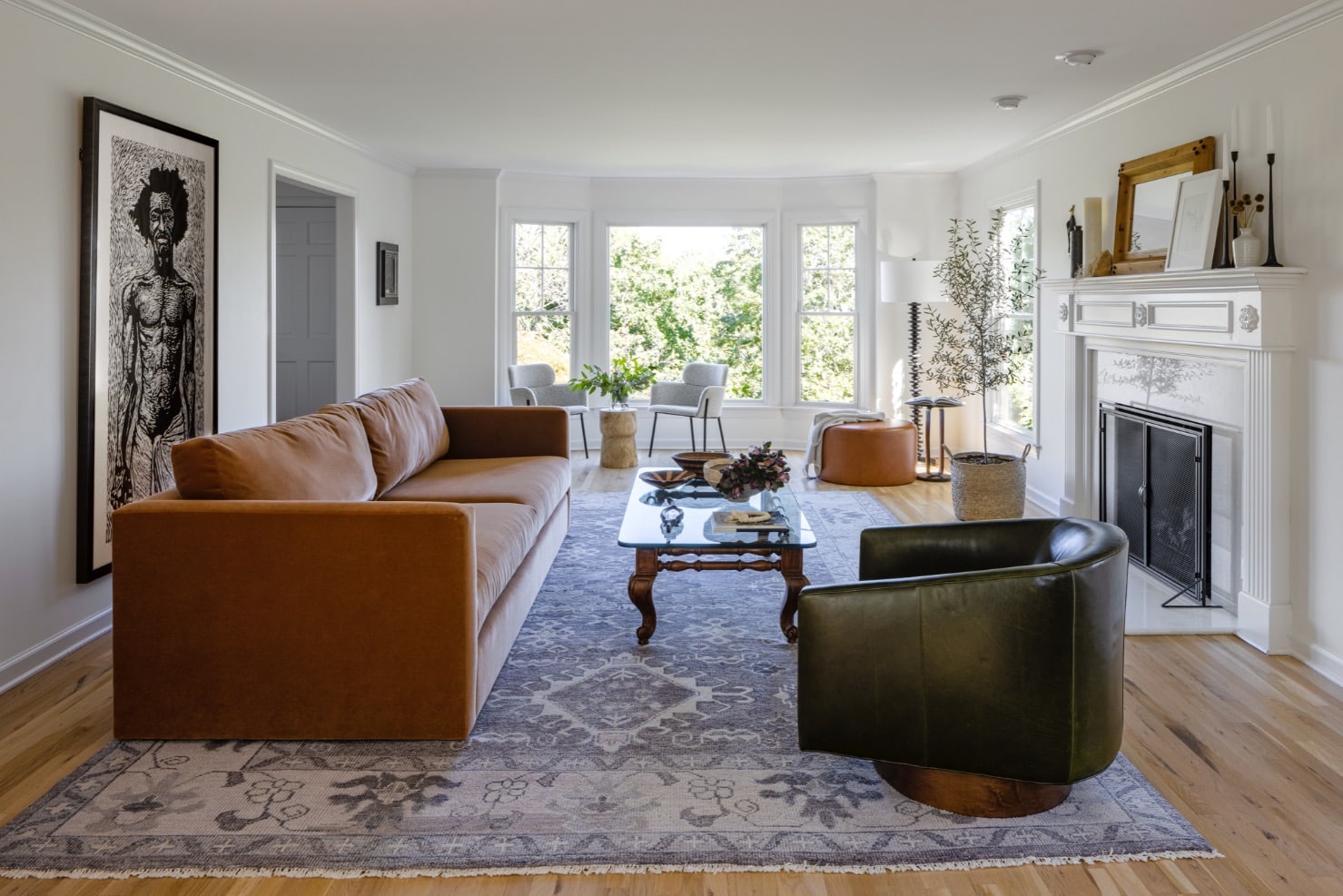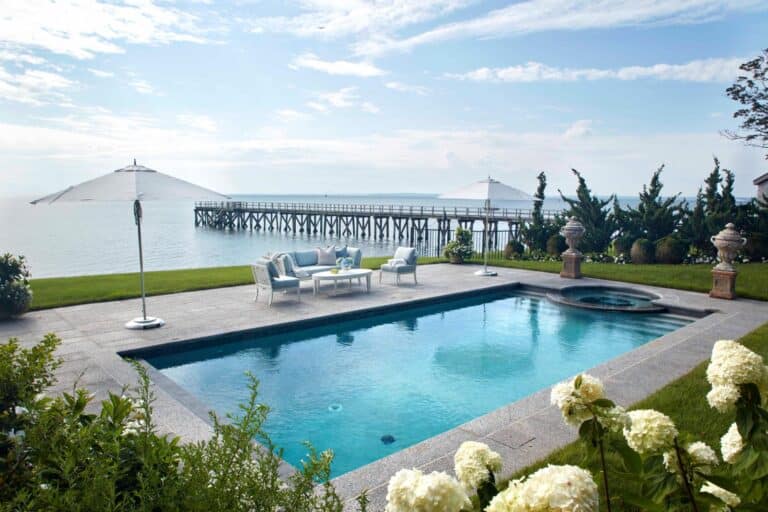When Elana Tenenbaum Cline was renovating her Fairfield, CT, house, she was seven months pregnant with her second child, was in the midst of launching her own business, Carta Creatives, and navigating all of it during the height of the Covid-19 pandemic. Despite all these challenges, she managed to design a home that not only reflects her and her husband’s passion for travel, but also provides a stylish and comfortable backdrop for spending time with family and friends. Now, with her firm soundly up and running, Tenenbaum Cline often takes some of the lessons learned from that very personal project and applies them to her work helping clients with branding, marketing and interior design needs. We called on Tenenbaum Cline to share her top design tips with us.
1. Live With It
While it can be the most inconvenient approach, the best thing Tenenbaum Cline says she did when they moved into their Fairfield, CT, home was live with it as is for almost a year. “We got a better sense of the space,” says Tenenbaum Cline. “We saw how the light hits it and where the sun comes in.” Then, when they were ready to renovate, they had a good sense of what worked and what didn’t. In the end, some spaces didn’t need a total overhaul. For instance, in the kitchen, lower cabinets stayed and were repainted; some uppers were replaced with open shelves. They replaced the island and got new hardware for the rest. The position of the appliances stayed where they were. “It worked,” says Tenenbaum Cline. “We learned how we wanted it all to function and then backed into the design that way.”
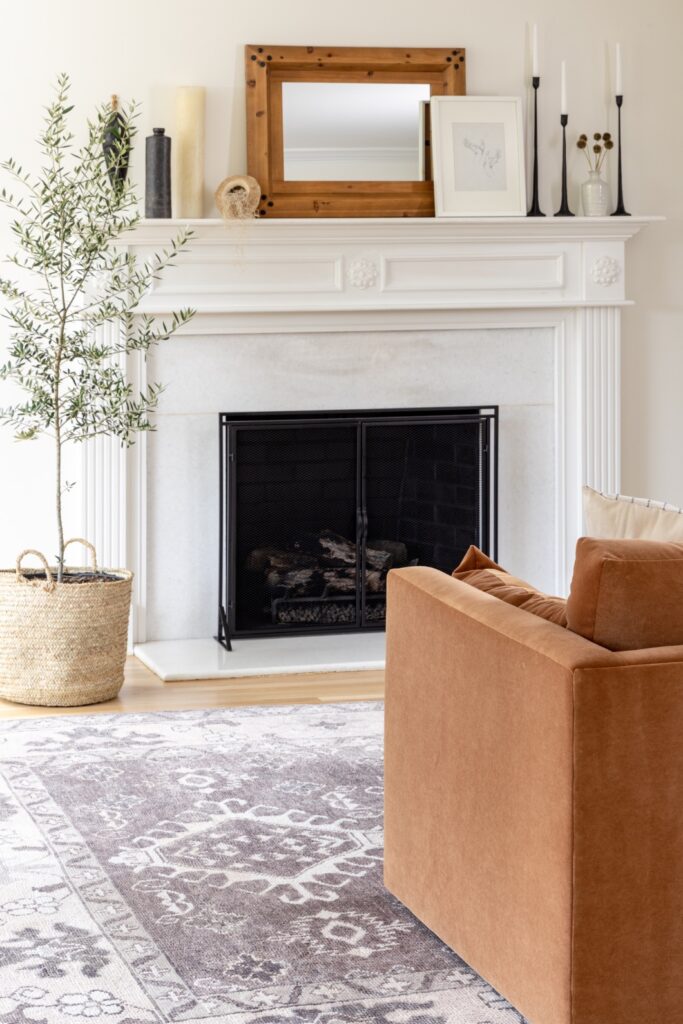
2. Set the Mood
Many times, in business, we’re told not to let our emotions come into play, but when it comes to design, let them take the lead advises Tenenbaum Cline. When designing each room of her home, she started the décor with a feeling. “What are the different feelings we want to evoke in each room depending on what it’s used for?” she and her husband asked themselves. Depending on the function, that mood changed.
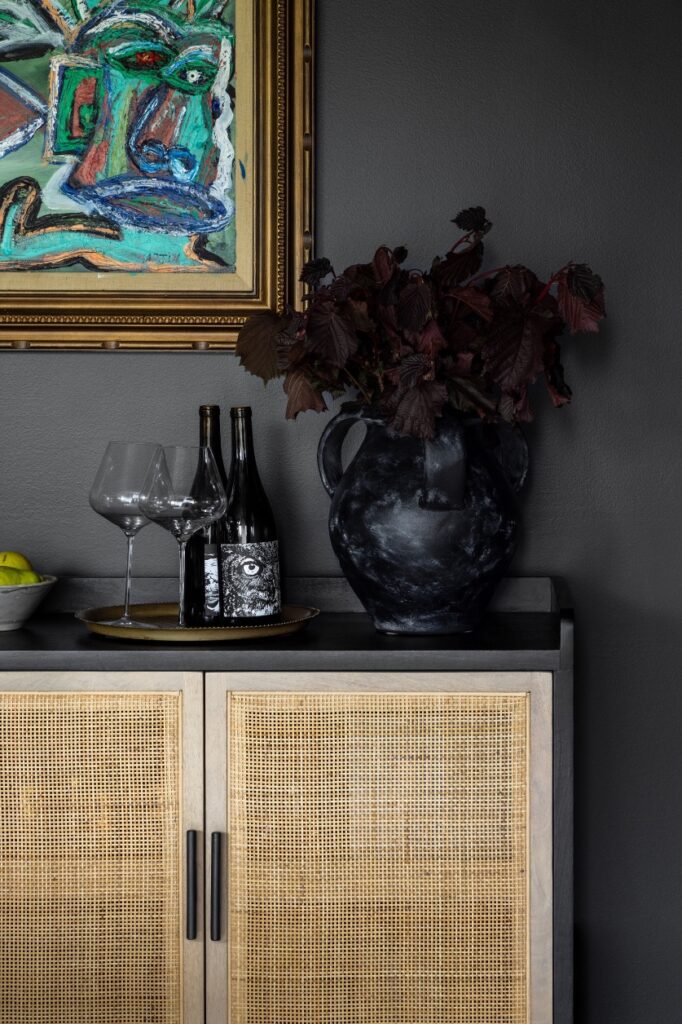
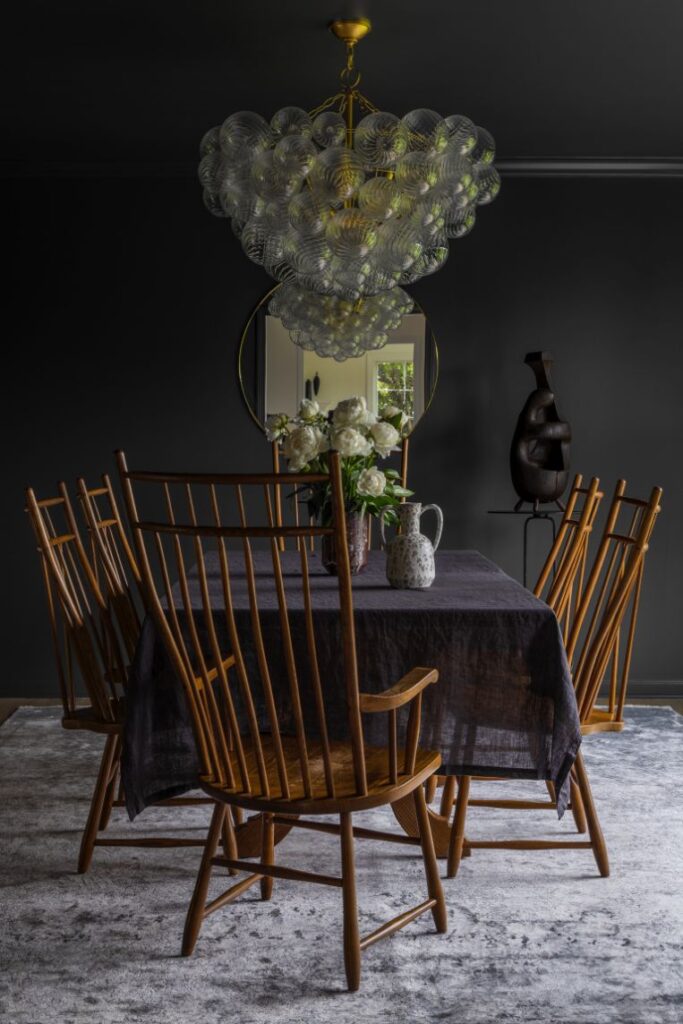
For the dining room, she wanted something moody. “We like to have big Thanksgiving dinner parties and we wanted drama,” says Tenenbaum Cline, calling on images of her favorite restaurants in Brooklyn and New York City for inspiration. They chose a dark gray paint for the walls and a striking chandelier from Casagrande Studio recommended by her sister-in-law (also a design pro). “It really becomes this jewel box,” she adds.
In her son’s room, she set a lighthearted and fun vibe. She chose bright neutrals, a teepee and jungle print wallpaper to pair with the shaggy carpet and modern white furniture. “In my son’s room, sunlight played a big part and the design reflects his rambunctious and energetic personality,” she says.
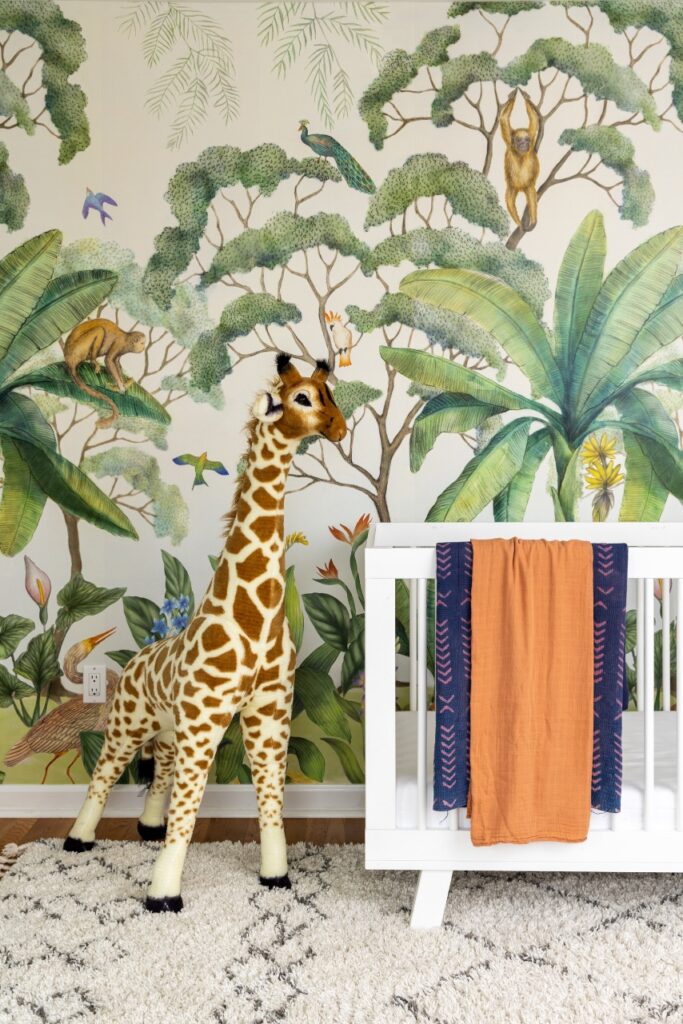
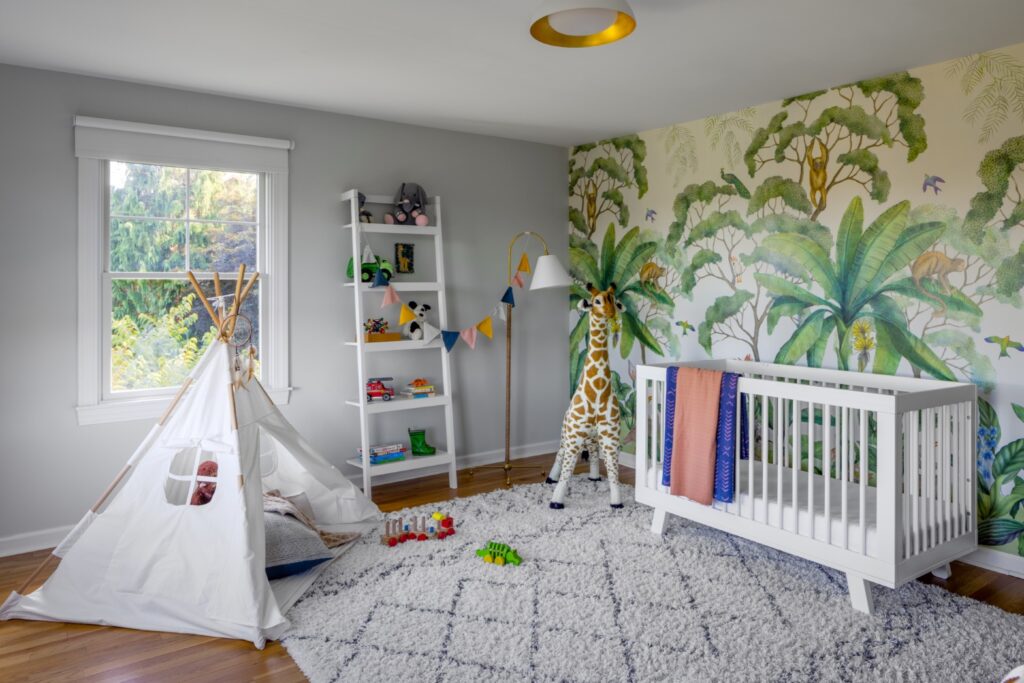
Her own office overlooks the pool, so Tenenbaum Cline chose to bring the outdoors in with natural fibers and wood tones. “I didn’t want to do too much color here,” she says. “I wanted to keep it a backdrop to focus on work and the projects I have going on.”
3. Function Then Form
Many times, design can get too focused on aesthetics and not focused enough on the practicality of the space. But no matter the room, she says, functionality is key. As part of their renovation, she and her husband focused a lot on storage, ease of use, and flow.
In the kitchen, her husband spends a lot of time cooking, so they chose open shelving and made sure it was easy to move from stove to refrigerator to prep space. “I think he made 18 dishes at Thanksgiving and everything had a place and made sense in the layout of the kitchen while he was cooking,” says Tenenbaum Cline.
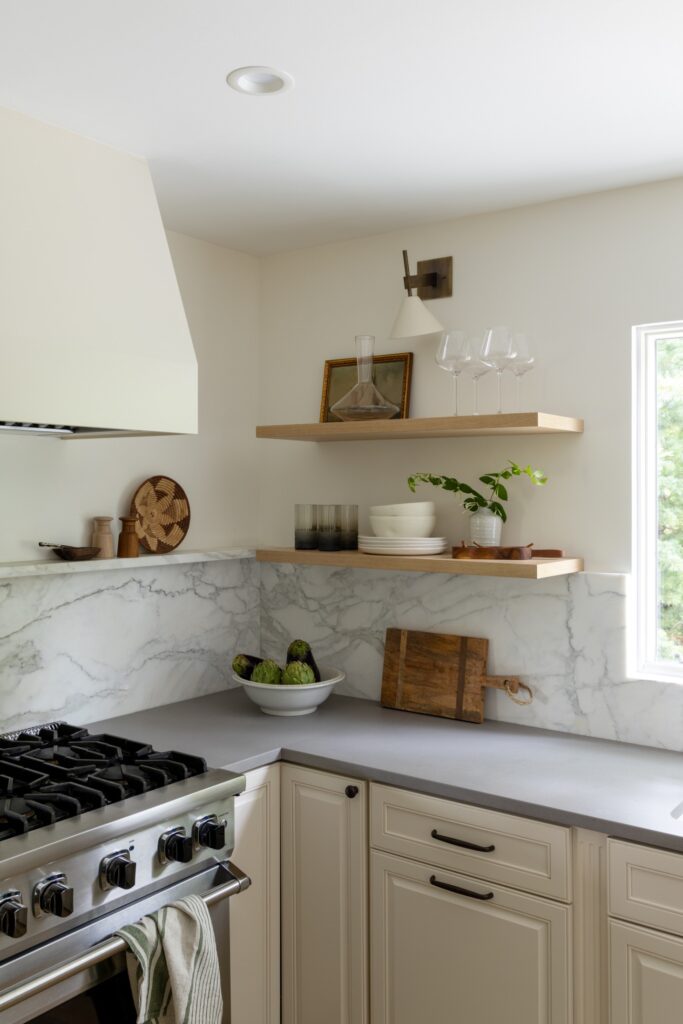
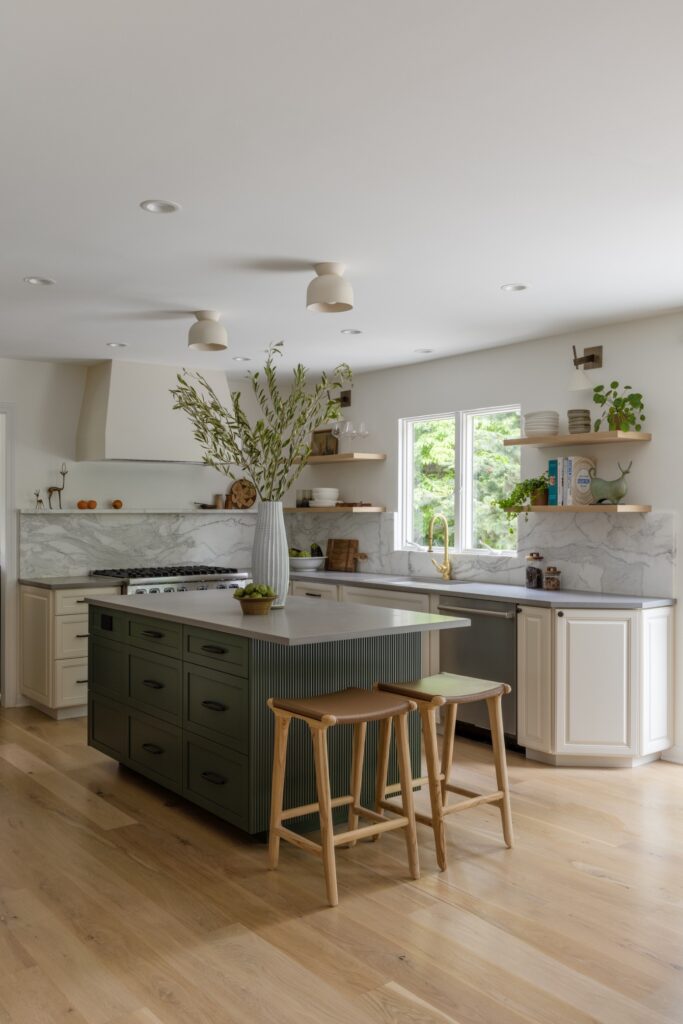
The laundry room was moved upstairs to eliminate the awkwardness of having guests pass their laundry on the way to the powder room. She added a lock on the bathroom door that says “engaged” or “vacant,” which Tenenbaum Cline loves because it’s both whimsical and practical at parties. Storage cabinets in the powder room have subtle thumb pulls to discreetly hide extra paper products.
4. Be Your Own Muse
Design, at the end of the day, is an expression of who you are, where you’ve been and where you want to go. Tenenbaum Cline infused her passion for travel into every room of their home. Her travels over the years have taken her to every part of the globe and along the way she collected masks from various cultures. She scattered her collection throughout the house, infusing her global memories into every design. The couple has a sculpture of a bull from one of their first trips together, which sits on an open shelf in the kitchen next to the couple’s Jerusalem cookbook. “We wanted a space with notes of our travels,” says the designer. The color scheme reflects their global influences as well: neutrals with warm undertones and subtle hints of color.
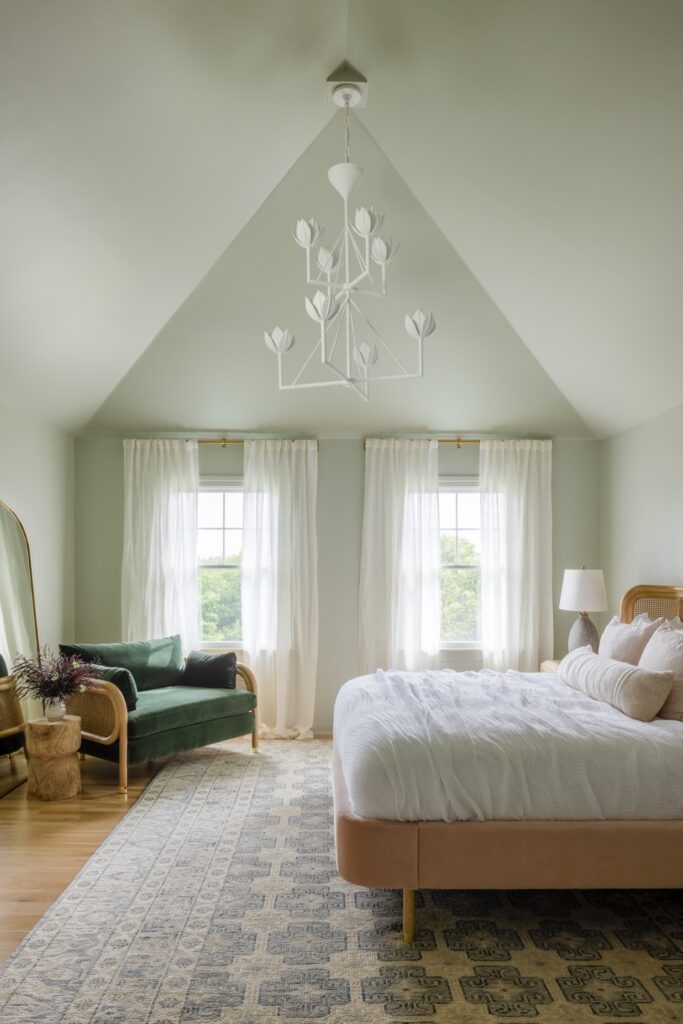
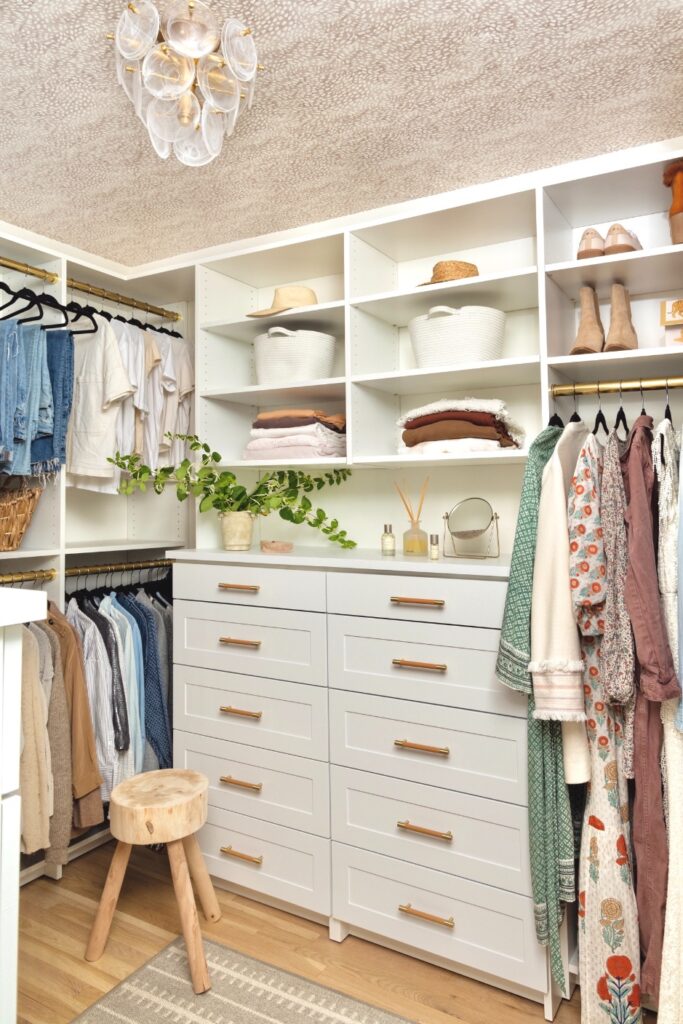
5. Think Big Picture
Through it all, creating a high-level vision for your aesthetic and functional goals will keep you on track and knowing where to spend more time, money and energy. Make a priority list so you never lose sight of the goal, advises Tenenbaum Cline. Saving sources, tracking budgets and organizing are services she loves to provide her clients at Carta Creatives, and skills she mastered through past jobs and renovations. “There are a million micro-decisions that happen during a renovation,” she adds. “Behind-the-scenes organization is so important.”
Photo Credit: Kyle J Caldwell
